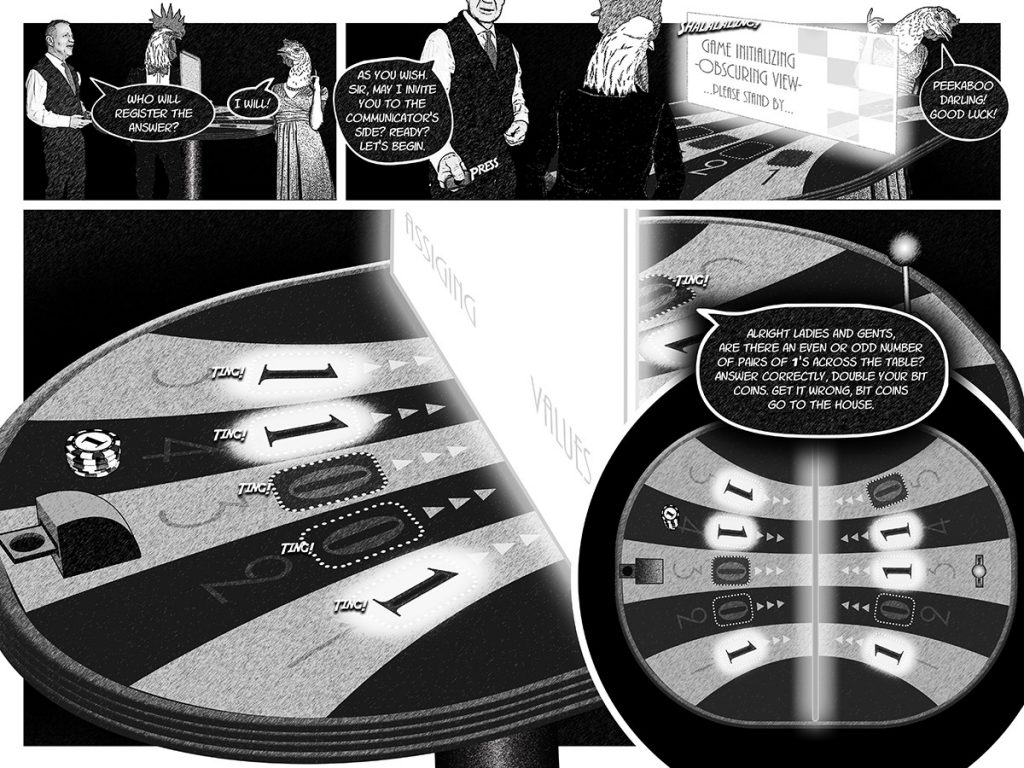Exploiting Entanglement to Compute
A quantum computer can solve certain problems in fewer steps than a classical computer because it can do so without working out the answers to questions that aren’t asked, but that a classical computer needs to answer in order to solve the problem. For example, suppose you want to know whether a statement like 'P or Q or R or . . .' is true or false, but you’re not interested in whether the individual components are true or false. The only way a classical computer could figure that out is by checking each component until it finds one that’s true, or finds that all are false. So the computer generally has to work out and store answers to many true/false questions that you aren’t interested in as steps in the process of deciding whether the one statement you are interested in is true or false. By contrast, a quantum computer exploits entanglement to bypass redundant information about the components.
Join us in the Quantum Quasino and use your quoins to beat the odds at the Distributed Computing Challenge table. See for yourself how a superquantum correlation can be used to reduce the steps required to solve the inner product problem by quantum-gaming the game!
More on Quantum Computation
Articles:
The online Stanford Encyclopedia of Philosophy has a good article on quantum computating
Books:
Multimedia
There’s a lot of hype about quantum computation. Basically, it’s an application of quantum entanglement—what Schrodinger called “the characteristic trait of quantum mechanics, the one that enforces its entire departure from classical lines of thought"—to a completely new way of computing. The distributed computing game in the Quantum Quasino is really about communication rather than computation, but the way our protagonists exploit the superquantum correlation of the quoins to cheat illustrates how a quantum computation works without getting bogged down in a lot of math.
To see where this comes from, listen to Sandu Popescu’s talk, "Nonlocality beyond quantum mechanics" (the relevant bit is at 37 minutes):
Watch Scott Aaronson's TED talk on quantum computation:

